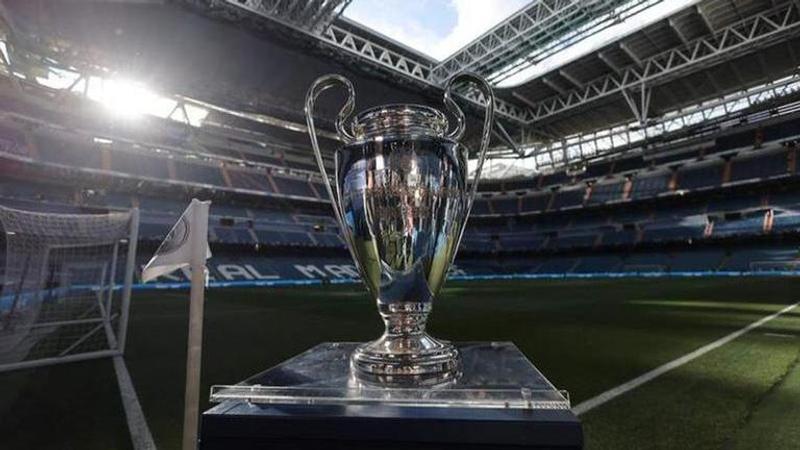Published 15:02 IST, May 10th 2023
UEFA aims to rise about 33% in the new revamped Champions League money
UEFA expects revenue from broadcasters and sponsors to rise about 33% for its revamped club competitions in 2024, and pledged Tuesday to spread most of any surplus among lower-ranked leagues if total sales approach 5 billion euros ($5.5 billion).

UEFA expects revenue from broadcasters and sponsors to rise about 33% for its revamped club competitions in 2024, and pledged Tuesday to spread most of any surplus among lower-ranked leagues if total sales approach 5 billion euros ($5.5 billion).
The Champions League currently drives global revenue of 3.6 billion euros ($3.9 billion) for UEFA club competitions for each of the three seasons from 2021 to 2024.
UEFA’s confidence is based on a first wave of broadcast deals including Britain, France and the United States for the 2024-27 seasons, when the men’s competitions will add more games because of an expanded format.
“We are working on (both) conservative and more optimistic projections in a range I would say between 4.6 billion and 4.8 billion (euros),” UEFA competitions director Giorgio Marchetti said Tuesday in a briefing.
Changes to the Champions League format were finalized last year following the failed launch of a breakaway Super League by 12 storied clubs in 2021. From 2024, it guarantees each team in the competition eight games instead of six, and created 64 more matches in total in each season to sell to broadcasters.
Now UEFA is working with the ECA and European Leagues group on how to distribute the extra prize money, while a new group recently launched seeking to give lower-ranked clubs a stronger voice.
One aspect under review is the widely disliked “coefficient” payments – which amounts to 600 million euros ($657 million) in the Champions League -- that rewards teams for their historic record in European competitions.
Critics believe it widens the existing wealth gap in European soccer. This season the coefficient fund will pay more than 36 million euros ($39.5 million) to Real Madrid while Maccabi Haifa will get less than 1.2 million euros ($1.3 million).
“Obviously this will be part of it,” Marchetti said of the wide-ranging cash distribution review. “It is too early to say which direction we will go.”
UEFA has been sensitive to claims that Champions League money drives financial inequality, and it awaits a final ruling from the European Court of Justice in Luxembourg in a case brought by Super League ringleaders Real Madrid, Juventus and Barcelona.
Marchetti noted that domestic TV deals are worth almost three times more than European prize money in the industry’s overall revenue. European top-tier clubs earned 24 billion euros ($26.3 billion) last year, according to UEFA research, and just 12% of that came from its competitions.
Marchetti detailed that the 2 billion euros ($2.2 billion) shared among the 32 Champions League clubs this season amounts to just 64% of the revenue earned by the competition’s commercial deals. About 250 million euros ($274 million) of Champions League revenues are paid as annual subsidies to clubs in the Europa League, Europa Conference League and Women’s Champions League.
European Leagues has consistently urged UEFA to help competitive imbalance at domestic level by sharing more money with about 600 top-tier clubs who do not reach the group stage of a UEFA competition.
Currently 105 million euros ($115 million) is shared among about 140 clubs that are eliminated in the qualifying rounds of UEFA competitions. All the other clubs who did not qualify for a UEFA competition share 172 million euros ($188 million) of so-called solidarity payments.
Marchetti said the top five nations – England, Spain, Germany, Italy and France – will have their share of solidarity money capped from 2024, when 30% of the surplus will be allocated to lower-ranked clubs and leagues.
Updated 15:02 IST, May 10th 2023




